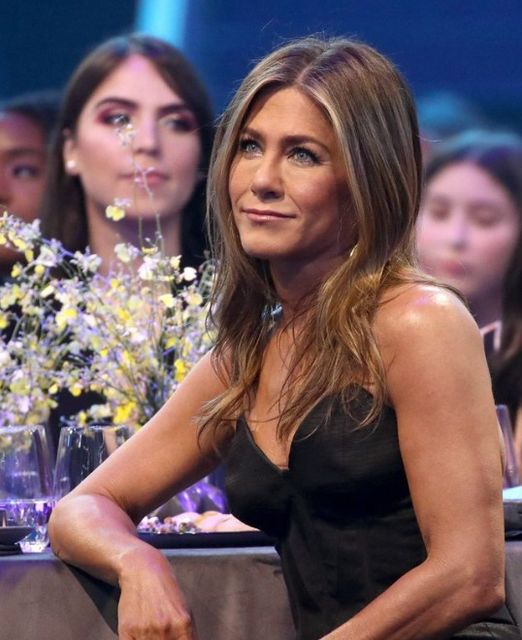Jennifer Aniston, the American actress and producer, has remained an enduring and beloved figure in the entertainment industry for decades. Born on February 11, 1969, in Sherman Oaks, California, Aniston’s rise to fame began with her breakout role as Rachel Green on the iconic television series “Friends.”

Beyond “Friends,” Jennifer Aniston has built a successful career in film and television, showcasing her versatility as an actress. She has appeared in a wide range of projects, from romantic comedies like “Marley & Me” (2008) to dramatic roles in films such as “The Good Girl” (2002), which earned her critical acclaim.
Her performance in “The Morning Show,” a television drama series, earned her a Screen Actors Guild Award and further solidified her status as a talented and multifaceted actress. Aniston’s enduring beauty and charisma have made her a sought-after figure in Hollywood, and she has continued to inspire and captivate audiences with her remarkable talent and dedication to her craft.
Off-screen, she has been an advocate for various charitable causes and has used her platform to raise awareness about issues like cancer research, disaster relief, and children’s healthcare.
Jennifer Aniston’s contributions to both the entertainment industry and philanthropy have left a lasting impact, earning her a special place in the hearts of fans and the admiration of her peers.

Jennifer Aniston, the beloved Friends star, has recently faced backlash for her comments about fame and the rise of internet culture. Angry fans have accused her of trying to “gatekeep” the Hollywood elite. During a sit-down interview with actor Sebastian Stan, Aniston reflected on how fame has changed in recent years and mentioned celebrities like Paris Hilton and Monica Lewinsky, whose fame was influenced by the internet.
Aniston’s comments have raised eyebrows and sparked controversy. Some argue that she is out of touch with modern society, while others feel that her reflection on fame is hypocritical, considering her own privileged background. But let’s dive deeper into the discussion to understand both sides.
Internet culture has undeniably shaped the way people become famous today. Platforms like TikTok, YouTube, and Instagram have given rise to internet stars who gained popularity for seemingly doing nothing extraordinary. This phenomenon has led to a diluted perception of the actor’s job, according to Aniston. She feels fortunate to have experienced the industry before the internet age took over.
Critics, however, have pointed out the irony of Aniston’s comments. They argue that she herself comes from a privileged background, as her parents are actors. This has led to accusations of nepotism and claims that she owes her success to her connections in the industry. Some Twitter users have called her a “nepotism baby” and questioned her ability to judge others’ talent.

While the debate continues, it’s crucial to acknowledge that social media has provided opportunities for individuals from previously overlooked communities to showcase their talents and gain recognition. Many believe that this is a positive change, allowing aspiring actors from all walks of life to pursue their dreams based on their own hard work and virality.
On the other hand, there are those who agree with Aniston’s perspective. They argue that trained actors who have dedicated years to honing their craft are often sidelined in favor of influencers who lack formal training. This issue is seen as a challenge across the industry, regardless of race or social class.

It’s important to mention that Aniston’s journey to fame was not without struggles. Her parents divorced when she was young, and her father initially discouraged her from pursuing acting due to the tough nature of the business. However, he later became supportive of her career once she started making a name for herself in Hollywood.




While the discussion surrounding Aniston’s comments on fame continues, it’s essential to recognize that different perspectives exist on this complex issue. Internet culture has undoubtedly changed the landscape of celebrity, and opinions on its impact differ among individuals. As the entertainment industry continues to evolve, it’s crucial to have open conversations and embrace diverse voices and talents.

